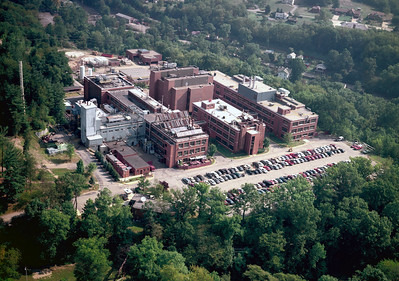
The Pittsburgh campus of the National Energy Technology Laboratory (NETL), a U.S. Department of Energy national laboratory, is slated to host a new, multi-million-dollar direct air capture center (DAC).
“The new facility will be designed with substantial flexibility to accommodate the rapidly evolving technological landscape,” said David Luebke, technical director of the NETL DAC Center, in a Feb. 15 statement.
The goal for the NETL site is to jump-start the development of emerging DAC technologies, which process air from the atmosphere rather than a power plant or factory flue gas to capture carbon dioxide (CO2) emissions.
“DAC technology is still early in its evolution, and a wide variety of technologies are being explored,” Luebke said.
The Biden administration says DAC is an important tool toward meeting U.S. climate reduction goals that call for a carbon emission-free electricity sector by 2035 and economy-wide net-zero emissions by 2050.
“DAC will be a cornerstone of decarbonizing the nation’s economy,” Luebke said, adding that NETL is well-positioned to lead the development of DAC technology.
For instance, NETL has played a key role in advancing research to capture CO2 from the flue gas streams produced by power plants and other industries and store it permanently in deep underground complexes and geologic reservoirs or to use it as a feedstock to produce higher-value products such as chemicals and plastics.
“The NETL DAC Center will become the gold standard in technology performance characterization as we collaborate with our partners to explore the potential of their diverse direct air capture concepts,” said Luebke.
Congress last year authorized $25 million for the new DAC Center, which is scheduled to come online during the summer of 2024, according to NETL, to help speed the commercialization of DAC technologies.
The center also will give developers a chance to operate under a variety of conditions so they have a better understanding of how various DAC technologies respond in different climates, from summer to winter and arid to tropical, NETL said.
Additionally, according to NETL, the DAC Center will include testing systems at three scales: lab-scale systems designed to examine the long-term stability of DAC materials, bench-scale module testing systems capable of probing flow dynamics, and small pilot-scale skid rooms able to test prototype DAC units under a broad range of climate conditions.
“The center will feature dedicated engineering, scientific and logistical support for experimental system design, installation, execution of experiments, and interpretation of results,” Luebke explained.
Data generated by the DAC Center also will be instrumental in enabling life cycle analysis (LCA) of emerging capture technologies. The results of LCA are used by technology developers and investors to evaluate alternatives from a global perspective.